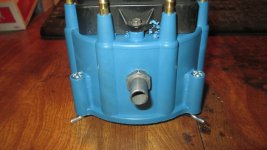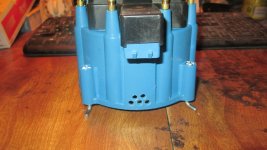Antz81
Well-known member
I've just started to get an Intermittent misfire on my 81.
It only seems to happen once the engine has warmed up. It happens while cruising and under acceleration, not sure about idle. While cruising (at 65mph) the mis can be felt and if you watch the tach it can drop anywhere from 50 to 500rpm before recovering. Sometimes it will go for a few miles with no issues.
I plan to check the distributor bearings and I'll try a new ignition module. Anything else i should check?
It only seems to happen once the engine has warmed up. It happens while cruising and under acceleration, not sure about idle. While cruising (at 65mph) the mis can be felt and if you watch the tach it can drop anywhere from 50 to 500rpm before recovering. Sometimes it will go for a few miles with no issues.
I plan to check the distributor bearings and I'll try a new ignition module. Anything else i should check?






